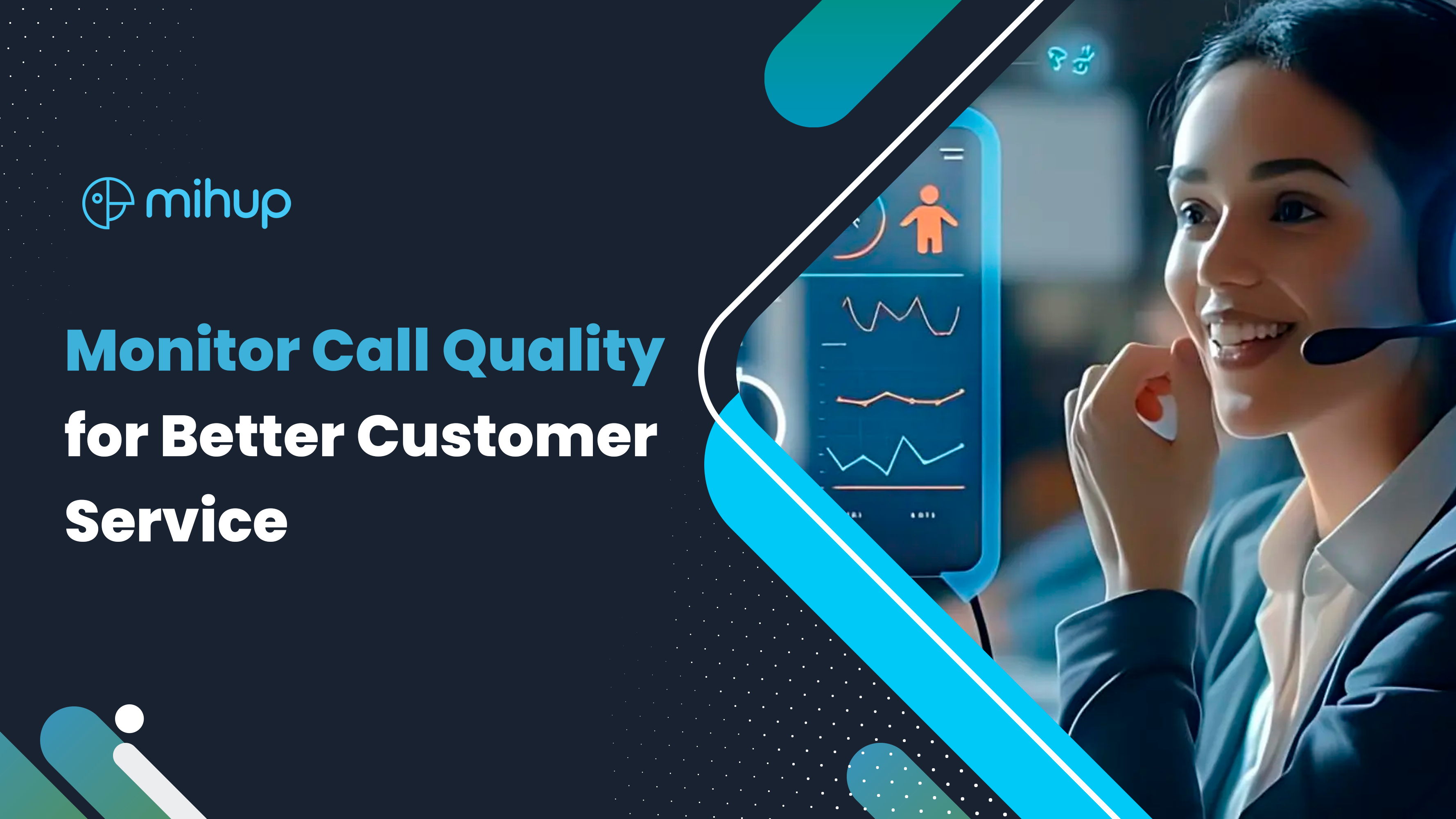“This call may be monitored or recorded for quality assurance”, Chances are, you’ve heard this phrase at the start of a call with customer service. Many people feel a bit uneasy about companies recording their calls, but we usually don’t think too much about it. Do we?
So, how does listening to these calls help enhance customer experience? Why do companies require these calls and what can they do with this information? Let’s start by understanding what “Call Quality” means and why it is important for customer service.
Meaning of Call Quality
Call quality measures how well customer service representatives interact with customers. It’s about creating efficient and effective conversations that leave customers satisfied. It includes various factors such as clarity of communication, the agent’s knowledge, professionalism, response time, and the resolution of customer issues. High call quality ensures that customers have a positive experience, leading to increased satisfaction and loyalty.
Call Center Quality Monitoring
Quality monitoring involves systematically assessing the interactions between call center agents and customers to ensure adherence to company standards, compliance with regulations, and overall service quality. This process typically includes evaluating call recordings, live monitoring, and analyzing performance metrics to identify areas for improvement and training opportunities.
Quality monitoring allows organisations to analyze and capture information derived from customer interactions like call recordings, email exchanges, surveys, and social media. This interaction information provides insights that allow businesses to know more about their customers’ thinking, but why do we need to do all this?
Benefits of Call Center Quality Monitoring
Contact center quality monitoring improves customer experience by ensuring consistently high-quality interactions, leading to increased satisfaction. It enhances agent productivity through regular feedback and training, reduces churn rates by retaining satisfied customers, and boosts operational efficiency by addressing common issues. Additionally, it strengthens the company’s reputation and fosters positive word-of-mouth referrals by maintaining excellent service standards. Here are some key benefits:
Improved Communication:
call center call monitoring helps ensure that agents communicate clearly and effectively, reducing misunderstandings and enhancing the customer experience.
Agent Performance:
Regular quality assessments help identify top performers and those who may need additional training or support.
Customer Satisfaction:
By addressing issues promptly and efficiently, companies can increase customer satisfaction and loyalty.
Call Center Email Quality Monitoring
In addition to phone calls, monitoring the quality of email interactions is equally important. Call center email quality monitoring involves evaluating the clarity, accuracy, and professionalism of email responses. This ensures consistency and quality across all customer service channels.
Best Practices to Improve Call Quality
“Communication is key,” but so is a sense of being understood. Here is a strategic roadmap for enhancing your call quality:
-
Define Clear Quality Standards:
Scorecards: Clear scorecards provide agents with a roadmap for exceptional service. Create a call monitoring scorecard outlining expectations for each call. This could include:
- Greetings: Agents should answer calls promptly, identify themselves and the company, and greet customers warmly and professionally.
- Politeness: Ensure courteous greetings and respectful language throughout.
- Accuracy: Provide correct information and avoid making unfeasible promises.
- Resolution: Aim to resolve customer issues or answer questions by call end.
- Efficiency: Handle calls promptly without unnecessary delays.
-
Leverage the Right Monitoring Tools:
Invest in Call Center Quality Monitoring Software: Implement robust call center quality monitoring software and call center monitoring tools to analyze call interactions, evaluate agent performance, and identify areas for improvement.
-
Invest in Agent Training:
Empower Your Team: Train your agents in product knowledge, customer service techniques, and handling difficult situations. This can include:
- Product familiarization
- De-escalation techniques
- Active listening skills the more knowledgeable and skilled your agents are, the better they’ll handle calls.
-
Recognize and Reward Success:
Positive Reinforcement: While addressing shortcomings is important, recognize successful behaviors! Highlight agents’ strengths alongside areas for improvement. This creates a balanced approach to development and rewards excellence.
-
Conduct In-Person Reviews:
Meaningful Feedback: Provide personalized feedback to agents after call monitoring. In-person meetings offer a superior platform for discussion compared to text-based feedback. This fosters clearer communication, eliminates confusion, and allows for open dialogue.
-
Prioritize Rewards and Recognition:
Motivation Matters: Acknowledge and reward agents who consistently deliver high-quality calls. This boosts morale and incentivizes maintaining or exceeding call quality standards.
Conclusion
Monitoring call quality isn’t just about ticking boxes; it’s the base of exceptional customer service. Powerful tools and software empower businesses to analyze calls, identify improvement areas, and elevate agent performance. High-quality interactions across all channels – phone, email, or beyond – are the key to building customer loyalty and success. By making the call to implement a comprehensive monitoring strategy, you can ensure your business delivers the top-notch service that keeps customers coming back and staying loyal.





